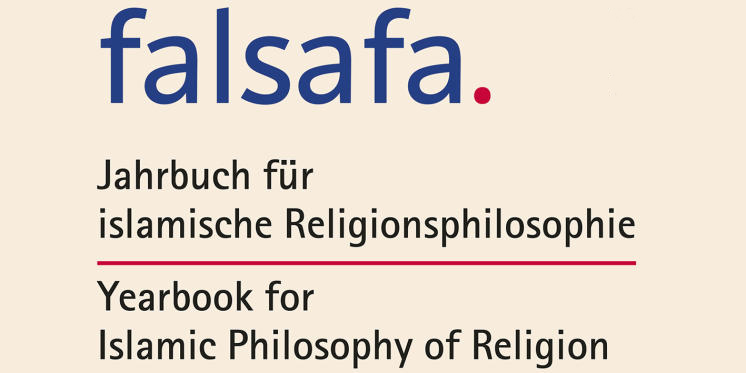

Falsafa: Jahrbuch für islamische Religionsphilosophie – Call for Papers der 2. Ausgabe
Die zweite Ausgabe des Jahrbuchs für islamische Religionsphilosophie befasst sich mit dem Thema: Offenbarung. Wie lässt sich Offenbarung denken? Wie verhält sich der Verstand zur Offenbarung und wie ist deren Anspruch vernünftig erklärbar? Kurz: Wie ist Offenbarung möglich?
Im Islam gilt der Koran als Offenbarung Gottes. Was bedeutet aber Offenbarung sofern sie sich sprachlich manifestiert? Und warum gilt der Koran überhaupt als Offenbarung? Dabei ist bemerkenswert, dass der Begriff und die Wirklichkeit der Offenbarung in der islamischen Geistesgeschichte differenziert betrachtet worden sind. Diese historisch vermittelten Analysen sollen jedoch religionsphilosophisch bedacht werden. Gilt der Koran als „heilige Schrift“ oder als „Wort Gottes“, so sind diese und andere Setzungen, wie etwa die Behauptung, der Koran sei familien-ähnlich zum christlichen Verständnis der Offenbarung eine „Inlibration Gottes“, vor dem „Richterstuhl der Vernunft“ zu begründen. Hierzu gibt es zahlreiche Ansätze aus der philosophischen, theologischen und mystischen Tradition des Islams, die methodisch und erkenntnistheoretisch für die Gegenwart des religiösen Denkens im Islam reflektiert werden sollten.
Zudem spielt die ästhetische Dimension der Offenbarung religiös eine tragende Rolle, die ebenso sehr nach philosophisch-hermeneutischer Begründung verlangt. Jede Offenbarung scheint in einem Kontext eingebettet zu sein, aber was ist der Kontext des Korans? Und gehört der Kontext zum Koran oder der Koran zum Kontext? Somit gehört das Verständnis des Korans zum Koran selbst. Aber dann stellt sich die Frage: Was ist Offenbarung an der Offenbarung? Dabei gewinnt die Person des Propheten Muhammad eine konstitutive Bedeutung bei der Bestimmung dessen, wie die Offenbarung im Islam möglich ist, gilt er doch als der erste und maßgebende Adressat des Korans. Geschieht der Koran an der Person des Propheten oder ereignet er sich vor ihm? In welchem Verhältnis stehen indes die historische Wirklichkeit der Offenbarung zum normativen Anspruch derselben?
Zugänge zur Reflexion über Offenbarung sind hier unter anderem auf historischer, ästhetischer, phänomenologischer, sprachlicher oder existenzphilosophischer Ebene erwünscht und denkbar. Als Offenbarungsreligion gehört der Islam zu einer Reihe an Weltreligionen, die implizit oder explizit zusammengehören. Insofern sind Offenbarungsverständnisse anderer Religion sowie interreligiöse, komparative Ansätze bedeutsam für das Selbstverständnis des Islams selbst, die ausdrücklich erwünscht sind.
Die zeitgenössische, historische und interreligiöse Beschäftigung mit der Offenbarung im zweiten Band des Jahrbuchs soll letztlich beitragen zu dessen Vision einer erneuten Begründung einer genuin islamischen Religionsphilosophie.
Gespannt werden Abstracts (maximal 2 Seiten) bis zum 22.10.2018 an milad.karimi@uni-muenster.de erwartet. Alle Beiträge durchlaufen ein Peer-Review Verfahren.
Für Rückfragen wenden Sie sich gerne an die Redaktion:
Falsafa. Jahrbuch für islamische Religionsphilosophie
Herausgeber: Prof. Dr. Ahmad Milad Karimi
Redaktion:
Westfälische Wilhelms-Universität
Zentrum für Islamische Theologie
Hammerstr. 95
48153 Münster
info@falsafa.de
Website Verlag Karl Alber
Falsafa: Yearbook for Islamic Philosophy of Religion – Call for Papers for the second edition
The second edition of the Yearbook for Islamic philosophy of religion deals with the topic of revelation. How is revelation thinkable? How does revelation relate to reason and how is its claim reasonably explainable? In short: How is revelation possible?
In Islam, the Quran is regarded as God’s revelation. However, what does revelation mean insofar as it manifests itself verbally? Why is the Quran even regarded as revelation? It is remarkable here that the term and the reality of revelation have been considered in a nuanced way in Islamic intellectual history. These historically transmitted analyses are however meant to be thought about in terms of philosophy of religion. If the Quran is understood as “holy scripture” or as the “word of God”, then this and other positings, like the claim that the Quran and the Christian understanding of revelation as “inlibration of God” are family-like must be substantiated in front of the “judgement seat of reason”. There are numerous approaches from the philosophical, theological and mystical tradition of Islam which should be reflected methodically and epistemologically for contemporary religious thinking in Islam.
Furthermore the aesthetic dimension of revelation plays a fundamental role in terms of religion, which calls for a philosophical-hermeneutical foundation as well. Every revelation seems to be embedded in a context, but what is the context of the Quran? And does the context belong to the Quran or the Quran to the context? Thereby the understanding of the Quran belongs to the Quran itself. But then the question arises: What about the revelation is revelation? Here, the person of the Prophet Muhammad gains constitutive meaning in determining how revelation is possible in Islam, since he is held to be the first and authoritative addressee of the Quran. Does the Quran happen to the person of the Prophet or does it happen in front of him? Meanwhile, in what relation does the historical truth of revelation stand to its normative claim?
Approaches to contemplation about revelation are here, among others, desired and thinkable on a historical, aesthetical, phenomenological and linguistical level, as well as from the perspective of existential philosophy. As a religion of revelation, Islam is one of a number of world religions which implicitly or explicitly belong together. Insofar, understandings of revelation of other religions as well as interreligious, comparative approaches are meaningful for the self-understanding of Islam itself and are explicitly welcome.
The contemporary, historical and interreligious engagement with revelation in the second edition of the Yearbook are meant to contribute to its vision of a grounding of a genuine Islamic philosophy of religion.
Abstracts of a maximum of two pages are welcome to be sent to milad.karimi@uni-muenster.de until 22.10.2018. All contributions will go through a peer review process.
Should you have any queries, please do not hesitate to contact the editorial team:
Falsafa. Yearbook for Islamic Philosophy of Religion
Editor: Prof. Dr. Ahmad Milad Karimi
Editorial team:
Westfälische Wilhelms-Universität
Zentrum für Islamische Theologie
Hammerstr. 95
48153 Münster
info@falsafa.de
Website Verlag Karl Alber [de]

